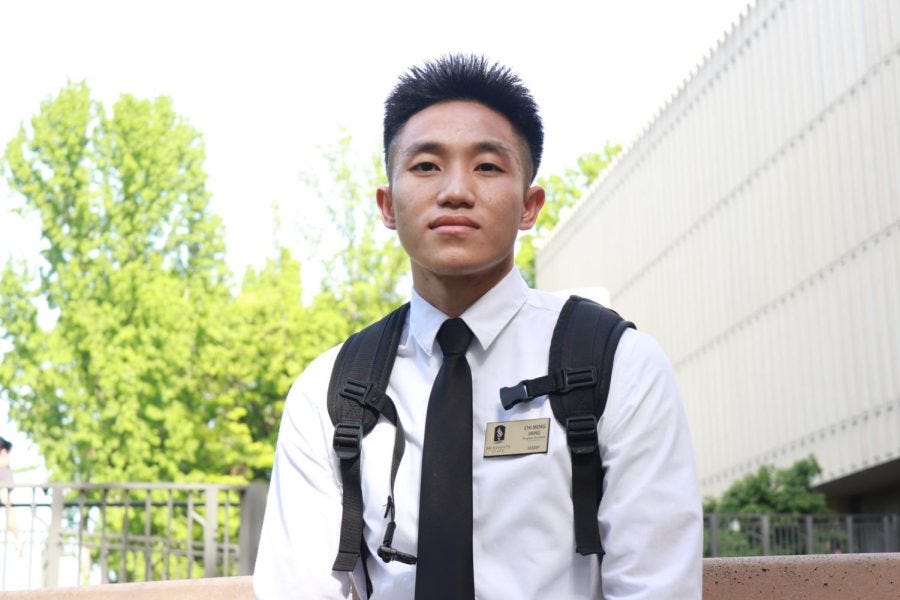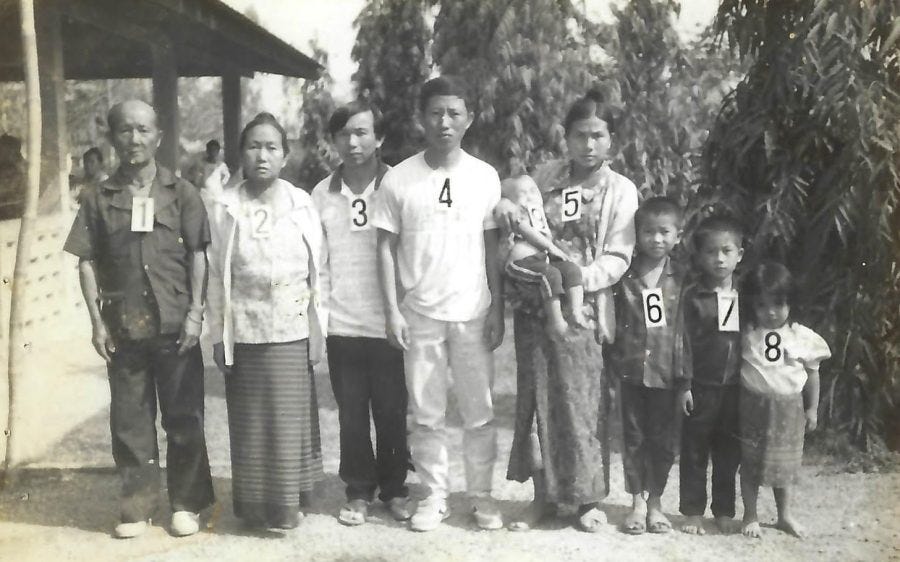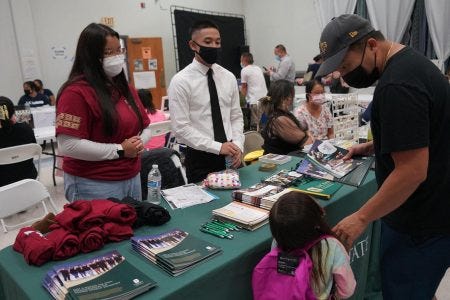From poverty to peer leader: a refugee student finds success
20-year-old criminal justice major Chi Meng Vang works to lead the way for other struggling students
Michael Pacheco wrote this article for Sacramento State’s The State Hornet. It is available for republication or reference.

When the United States military withdrew from Vietnam in 1975, many Hmong refugees migrated from Laos and Vietnam to refugee camps in Thailand and other countries in order to avoid the conflict.
The refugee camps were crowded with people, with the common and market areas of the camps being shoulder to shoulder during the day. The residential areas were just big bamboo huts with dozens of individuals in each of them, struggling to share floor space just to sleep, let alone feed everyone.
This is where criminal justice major Chi Meng Vang was born in 2001.
Three years after he was born, Vang’s father decided to move his family overseas to the United States in order to secure a better future for his dependents.
“My dad wanted my family to be successful,” Vang said. “My dad wanted us to have money, have a wonderful life like other people do.”
Vang is a criminal justice major and peer mentor for the Asian Pacific-Islander and Desi-American community at Sacramento State.
Vang said his father, Cha Teng Vang, served as a camp leader at one of the refugee camps and often helped resolve issues in those crowded areas. He said he looks up to his father and that he is one of the biggest reasons he chose his major.

He helped solve crimes within the camps since sometimes there would be a lot of trouble or issues between people,” Vang said.
Vang said one of the initial struggles he faced when he first came to the US was living in a four-bedroom house with a family of 14 and his uncle’s family of seven.
Vang remembers the financial struggles that his family faced, and having to get clothes from donations and very limited food options available.
“I remember my first lunch in America was a bowl of rice with ginger and salt,” Vang said. “I remember waking up in the middle of the night, I was hungry, and that’s the only thing my mom could have cooked for me.”
Vang said another problem that he faced when he first came to the U.S. was that he did not know any English and wasn’t familiar with American culture, which led to some struggles in academic and social aspects while attending school.
“To be honest, it felt like I didn’t have many friends because I didn’t speak English,” he said. “I remember I was isolated from a lot of the students because I didn’t know how to connect with them.”
His family moved around the country and his father looked for work opportunities as they came. Vang eventually moved back to Sacramento where he ended up attending Grant Union High School.
After graduating from Grant Union in 2020, Vang said he was urged by his family to apply to a CSU and made the choice to apply to Sacramento State despite having reservations about his readiness.

His freshman year was a period of adjustment, as he had to balance work needed to support his family with his schooling and almost dropped out, according to Vang.
“My grades were so low, and my family was going through financial struggles at the time,” Vang said. “I thought I should just drop out and work because I need to support my family.”
In December of 2020, Vang learned of a job opportunity to work with Sacramento State’s Student Academic Success & Educational Equity Programs.
SASEEP Graduate Student program lead Andrew Yang has worked with Vang since his start with the program. Yang said he has noticed Vang’s progress as a community leader through the program.
“I can see through his work that he was growing as a leader, being confident in public speaking and is very ambitious,” Yang said. “I see him as being a leader that will bring impact to not just our Hmong community, but the Sacramento community as a whole.”
Last year, Vang became involved with the Sac State chapter of the Hmong University Student Association which he says helps promote higher education opportunities, cultural awareness and support for Hmong students.
Vang is currently the Sac State HUSA president, a peer lead for Project Helping Mentor Our Next Generation and a peer mentor for the APIDA center.
Project HMONG director Chao Vang recounted Vang’s growth as a person and as a community member.
“Chi’s story is Sac State’s story,” Chao Vang said. “As a former refugee who came to America in the mid 2000s, his determination and aspiration is contagious and have served him well as a peer leader.”
Vang is looked up to as a source of inspiration and support, as noted by vice president of student affairs Ed Mills.
“His dedication to his family, his education, and to making a positive impact on his community is exceptional,” Mills said. “He is always thinking of ways to serve others and enhance their lives.”
Vang is also a youth mentor at local high schools to help with mental health, substance abuse and academic success. He said he wants to provide help for people in his position where he didn’t receive any and hopes that other struggling students don’t have to go through what he did.
“People said they’re gonna help you, but then when it’s time to help you, they’re not there for you,” he said. “I’m not going to be like those people. I’m going to be better. I’m going to be there to help those students who need me.”



